Top Cleric Implicated In Corruption Apologizes To Khamenei
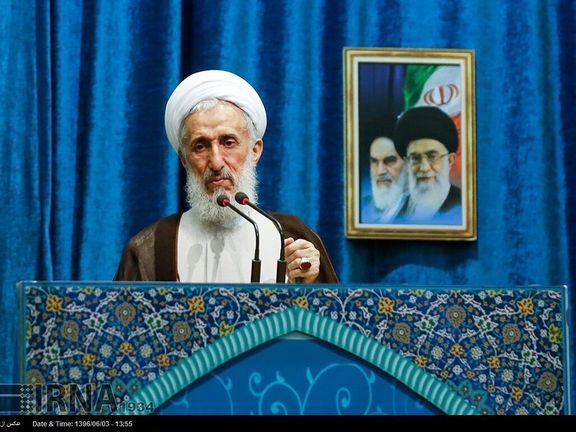
The interim Friday Imam of Tehran and senior advisor to the chief justice, who was involved in a recent corruption scandal, has issued an apology to Supreme Leader Ali Khamenei.

The interim Friday Imam of Tehran and senior advisor to the chief justice, who was involved in a recent corruption scandal, has issued an apology to Supreme Leader Ali Khamenei.
In a video message released on Friday, Kazem Sedighi extended his apologies to the "esteemed leader," alluding to Khamenei. The cleric, however, did not apologize to the people, instead urging them to "pray for him."
Sedighi admitted to negligence and mistakes on his part without giving further details. The apology came in the wake of mounting pressure, notably after Imam Sadiq University in Tehran, which is close to regime hardliners, removed Sedighi's name from its list of speakers for Ramadan ceremonies.
Sedighi, who has earned the moniker "the weeping sheikh" from critics, faced accusations of appropriating public land after documents surfaced indicating the illegal seizure of land in northern Tehran. Initially denying the allegations and attributing his signature on the documents to forgery, Sedighi's defense crumbled with the emergence of further evidence.
Recent revelations unveiled the transfer of a 4200-square-meter garden belonging to a seminary, worth an estimated $20 million, to an entity controlled by him and his family. In his apology, Sedighi disclosed that the land had been returned to the seminary.
The scandal has sparked widespread outrage, particularly on social media, reflecting the growing discontent over corruption within influential circles. Sedighi's apology, while addressing the Supreme Leader, leaves unanswered questions regarding his accountability.
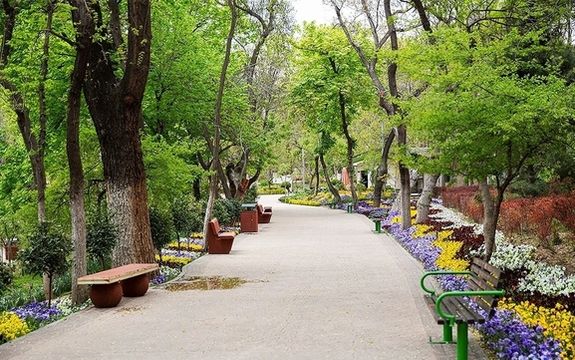
Controversy has ignited in Iran over a government plan to construct mosques in Tehran's parks, with critics denouncing the project as either a misuse of public funds or driven by hidden motives.
Public outrage erupted as images and reports circulated online revealing that the municipality of Tehran had initiated the construction of a mosque in Qeytarieh Park, located in northern Tehran. The construction involved fencing off a section of the park and cutting down trees, sparking widespread backlash.
Iran International has received scores of comments by Iranians who emphasized that parks are the first and most accessible places for protesters to gather in neighborhoods, prompting the government to replace them with mosques, seen as potential outposts for deploying security forces to crush future demonstrations.
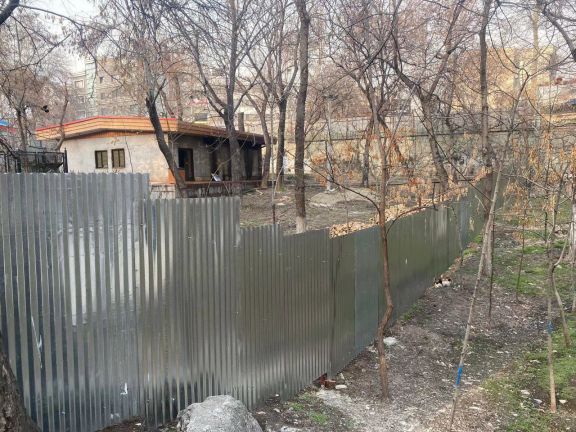
Once seen as propaganda tools, Iranian mosques have undergone a shift in function amid declining attendance. During recent protests, these mosques reportedly served as staging grounds for security forces cracking down on demonstrations. Mosques additionally function as recruitment centers for the Basij, the IRGC's volunteer paramilitary force that played a key role in suppressing the protests.
Citizens have launched an online petition expressing their dismay and calling for intervention from the head of the Administrative Court of Justice, the head of the Judiciary, and the president to halt the project. The petition highlighted Tehran's severe air pollution and emphasized the urgent need for more green spaces and trees in the capital.
They pointed out that there are already several mosques in the area, many of which are underutilized. Additionally, the project was criticized as a misuse of public funds, further fueling public opposition.
After several days of silence from city officials, Majid Ghafouri Rouzbahani, an assistant to the mayor of Tehran, finally confirmed the construction of a "magnificent and splendid mosque" in Qeytarieh Park. He justified the project by citing the lack of religious facilities in the upscale Qeytarieh neighborhood and the demand from religious residents.
Adding fuel to the fire, Mayor Alireza Zakani also came out in defense of the decision and “declared plans to build mosques in all of the capital's parks, not just Qeytarieh.”
Zakani’s announcement was also echoed by the spokesperson for the Tehran Municipality, who said Friday that "The mosque in Qeytarieh Park will not be the first or last mosque in Tehran's large parks. Acknowledging the low number of mosque goers, he insisted that “The fact that some existing mosques have few worshipers or that the worshipers are of a particular age group (the elderly) is not a good reason to stop developing mosques."
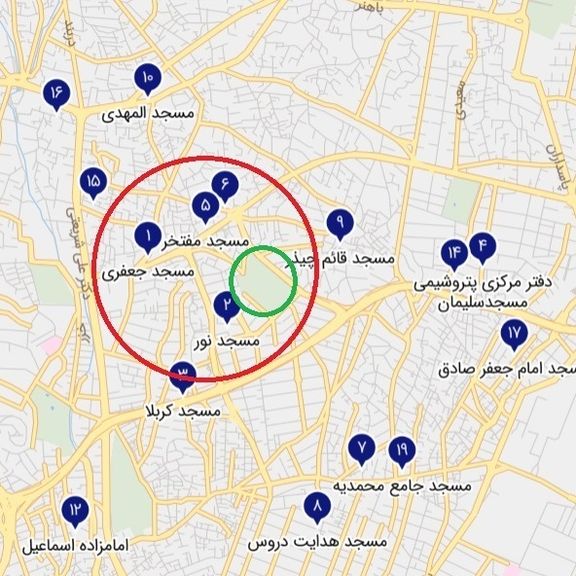
Last year, a senior Iranian cleric, Mohammad Abolghassem Doulabi, revealed that 50,000 out of 75,000 mosques nationwide had been closed due to a significant decline in attendance. Doulabi, a liaison between President Ebrahim Raisi's administration and the country's seminaries, expressed concern over the implications of low mosque attendance for a state founded on Islamic principles. In December, Mohammad Mehdi Esmaeili, the Minister of Culture and Islamic Guidance, raised alarm over the fall in mosque attendance across the country.
The government's push to build more mosques, many of which are likely to remain empty, has further stoked public outrage, dragging politicians into a heated debate.
Reformist commentator Abbas Abdi took a jab online, suggesting the mosque project is a sweetheart deal for regime insiders who will secure construction contracts. "If you can't make young people pray, it's okay. There's an easier way that also benefits your contractors. Build as many mosques as you can."
Conservative journalist Ali Gholhaki criticized the plan to build the needless mosque in Qeytarieh Park that is surrounded by at least five mosques and one Husayniyya (a Shiite congregation hall) as well several smaller prayer sites. He labelled it as a bureaucratic vanity project with no benefit to residents, saying it only has “a report-padding function.”
Prominent Iranian sociologist Mohammad Fazeli challenged Tehran's mayor: "Prove that your mosque construction plan will promote prayer."
"Mixing ideology, coercion, and money has birthed a dangerous level of politics and foolish actions,” he stated.
Mohammad Mohajeri, a conservative politician and a critic of the current ultraconservative political establishment, slammed the decision as “a form of obstinacy” on the part of the government.
“Qeytarieh and neighboring Chizar are old, religious communities in Tehran with ample mosques," he said. “The current population doesn't require a new one. And if they did, they have the means to expand existing facilities or build a new mosque themselves, without government or municipal intervention."
Cleric Saeed Lavasani, himself a former prayer leader, said, “Building mosques is a community act of faith, not a municipal duty. The city should focus on its real job: building parks, constructing highways, developing urban systems, optimizing routes -- areas where they seem to be falling short.”
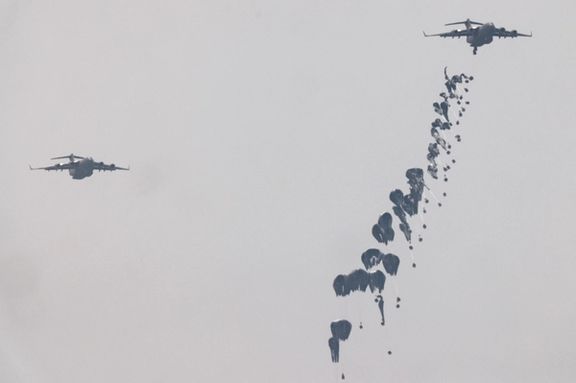
An Iranian cleric in charge of government assistance to Palestinian groups has proposed a “voluntary” contribution deducted from salaries in Iran to help Palestinians.
Mohammad-Hassan Akhtari, who is the head of the presidential committee of support for “the Islamic revolution of the Palestinian people,” was quoted by media in Tehran on Saturday as calling for a government decision to institute the contributions.
Although he spoke of voluntary contributions, such a scheme would amount to a tax for Palestine, especially in the case of the vast government-sector employees. People will be pressured to contribute regardless of the voluntary nature of any proposal or government decision.
Akhtari, who was appointed to his current post by the more moderate former president, Hassan Rouhani, a decade ago, was quoted as saying that “During this time, we have been able to deliver assistance to Palestine through various means. There are ways to provide aid despite all the difficulties.”
Iran's Islamic regime has been a staunch supporter of Palestinian and other militant groups in the region, having created a proxy network of armed militias dedicated to the destruction of Israel.
Although Tehran has avoided direct involvement in the Gaza war since last October, its proxies including the Lebanese Hezbollah and Yemen's Houthis have attacked Israel. The Houthis have also launched almost daily attacks on international shipping in the Red Sea.
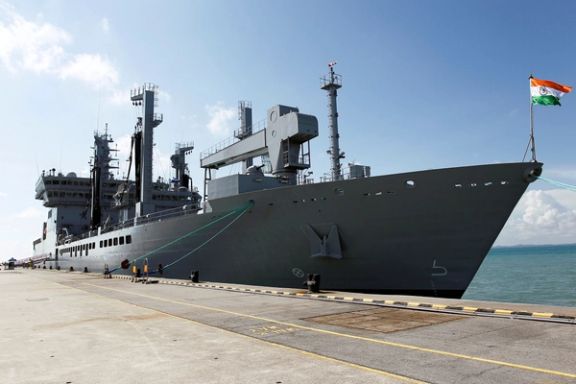
The Indian Navy said it had freed a hijacked Iranian fishing vessel from nine armed pirates in the Arabian Sea on Friday, rescuing its crew unharmed.
The fishing vessel, Al-Kambar 786, was southwest of the Yemeni island of Socotra on March 28 when it was reported to have been boarded by pirates, according to a statement from the navy late on Friday.
The ship was intercepted by the INS Sumedha and INS Trishul, leading to "over 12 hours of intense coercive tactical measures" forcing the pirates to surrender, the navy said.
The crew of 23 Pakistani nationals were safe, it said.
"Indian Naval specialist teams are presently undertaking thorough sanitisation and seaworthiness checks of the fishing vessel in order to escort her to a safe area for resuming normal fishing activities," the statement said.
India has responded to 18 incidents, deploying 21 ships and 5,000 personnel in rotation, boarding and investigating over 1,000 vessels, the navy said last week. Its unprecedented presence has deployed more than a dozen warships some days.
Taking advantage of Western forces' focus on protecting shipping from attacks in the Red Sea by Yemen's Iranian-backed Houthi militants, pirates have made or attempted more than 20 hijackings since November, driving up insurance and security costs and adding to a crisis for global shipping companies.
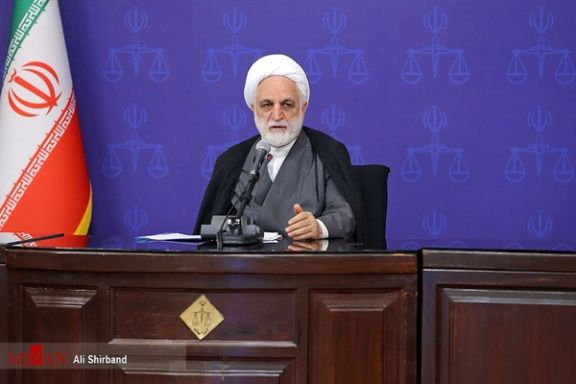
Amidst a backdrop of escalating corruption scandals and economic turmoil, the head of Iran's judiciary has acknowledged the public's discontent over injustice.
Gholamhossein Mohseni Ejei’s statement on Saturday came in the wake of widespread outrage fueled by recent revelations, including a land-grab involving Tehran's Friday prayer Imam Kazem Sedighi.
In recent years, Iran has been rocked by a series of corruption scandals and economic setbacks, exacerbating the already challenging conditions facing its citizens. Corruption has permeated various sectors, ranging from government officials to influential religious figures.
A focal point of controversy centers on Kazem Sedighi, the Friday prayer leader in Tehran. Sedighi, known for his ultra-conservative stances, faces accusations of unlawfully acquiring land valued at $20 million.
Documents disclosed by a whistleblower indicate that Sedighi and his children acquired a 45,200 square foot garden situated in a prime location in northern Tehran.
Against the backdrop, Ejei acknowledged the widespread corruption saying, "I am the foremost responsible official to express these words. If I fell short in any way, I am to blame; I couldn't secure your rights from usurpers."
The judiciary's acknowledgment of public discontent signals a recognition of the severity of the situation.
Despite widespread public outrage, the Iranian judiciary has refrained from pursuing legal action against Sedighi. The leniency has prompted many Iranians on social media to draw comparisons between the treatment afforded to Sedighi, who finally expressed sorrow Friday night accepting the allegations, and the regime's severe punishments for citizens accused of minor offenses.

The stabbing of an exiled Iranian TV presenter in London has renewed calls for action to confront and deter the regime in Tehran from expanding its malign activities.
Pouria Zeraati, a journalist and host at the UK-based Iran International, was attacked outside his home in Wimbledon Friday afternoon, reportedly by a few men who fled in a car after knifing him.
It is still unclear who the attackers were and what their motive was. But fingers were pointed at the Iranian regime almost immediately after the news broke, given the Islamic Republic’s track record in plotting against dissidents –and even foreign officials.
“The long arms of the brutal Iranian regime,” commented Hannah Neumann, a Green member of the European parliament. “We all need to urgently do our homework to protect those who seek refuge here from transnational threats and violence.
This is not the first time the Iranian regime seeks to harm Iran International journalists. An ITV investigation last year revealed that Iran’s Revolutionary Guards (IRGC) had commissioned a hitman to assassinate the hosts of two flagship shows on Iran International TV. The plot unraveled because the hitman turned out to be an agent of a ‘western intelligence agency’.
This time they got much closer, stabbing and injuring another Iran International journalist.
“Thankfully his condition is not believed to be life-threatening and he is in a stable condition,” London Metropolitan police announced in a statement. “However, due to the victim’s occupation…coupled with the fact that there has been a number of threats directed towards this group of journalists in recent times, the incident is being investigated by specialist officers from the Met’s Counter Terrorism Command.”
According to the police, since 2022, a number of plots to kidnap or kill UK-based individuals perceived as enemies of the Iranian regime have been disrupted.
British MP and Chair of Foreign Affairs Committee Alicia Kearns said, "Iran continues to hunt down those brave enough to speak out against the regime. Yet I remain unconvinced that we and our allies have clear strategies to protect people in our countries from them, and protect our interests abroad."
Critics like Kearns believe inaction or confusion in dealing with Iran’s threats has emboldened the Iranian regime to attempt to silence dissidents anywhere in the world with almost absolute impunity.
“The Islamic Republic feels safe in attacking journalists like Pouria Zeraati because it knows that it won’t face any consequences,” wrote Alireza Nader, an expert on Iran and US policy. “The Biden admin has no Iran policy, just a vague hope that it can return to “diplomacy” with the regime. And Europe follows Biden’s lead. How many more people will be knifed before @POTUS changes his policy?”
In February 2023, Iran International was forced to temporarily shut down operations in London and move to Washington, as threats against the organization and its employees were deemed too dangerous and imminent.
Not long before the incident, Iran's minister of intelligence had called Iran International a terrorist organization, laying the grounds for all sorts of action against the broadcaster and its journalists.
“I appreciate the wider concern this incident may cause,” said Commander Dominic Murphy, head of the Met’s Counter Terrorism, “particularly amongst others in similar lines of work, and those from Iranian communities. We continue to work closely with the victim’s organization.”
“This is a wakeup call for US and European officials,” Karim Sadjadpoor of Carnegie Endowment for Peace said on X. “Iran is actively trying to kill reporters and activists in the West and nearly succeeded in the middle of London.”